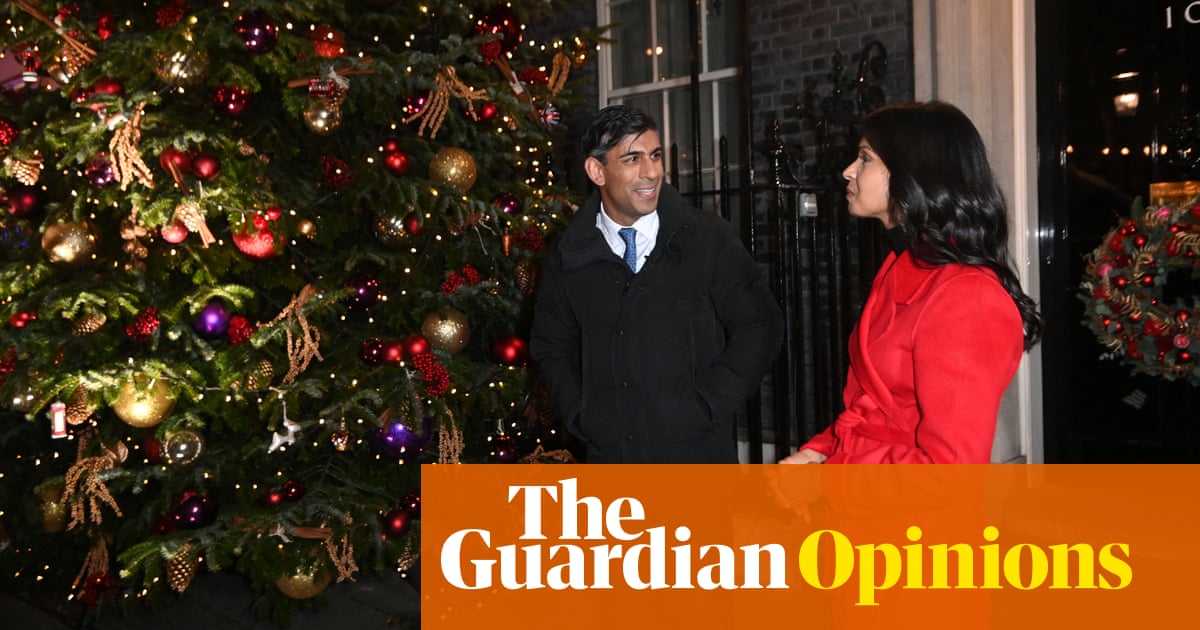
Jack Saunders might possess a PhD and have lectured undergraduates for 10 years, most recently at University College London, yet in all that time job security and an above-inflation pay rise have eluded him.
“I have been on a fixed-term contract since I started in 2011,” he said. “And there hasn’t been a pay award above inflation since Gordon Brown was prime minister. It means you are always searching the job market and each job is a stopgap.”
Saunders, a rep for the University and College Union, a trade union representing academics, went on strike along with staff from 57 other institutions for three days last month. He is expecting to support further strikes in a war of attrition with university employers over three issues – low pay, cuts to the academic staff pension scheme and the “casualisation” of the workforce, where fewer staff are on permanent contracts. “Higher education employers have adopted a form of macho management that just makes things worse for staff every year that it goes on,” he added.
The Universities and Colleges Employers Association has offered a 1.5% rise dated back to April, arguing that in the midst of a pandemic, and when it is putting increased sums into academics’ final salary pension schemes, it cannot afford any more.
At the B&Q warehouse and distribution centre in Worksop, and at workplaces across the country, the story is much the same. Faced with the huge squeeze on living costs, as inflation erodes wages and household bills soar, workers are demanding pay rises to keep up.
About 450 staff who work for the logistics firm Wincanton and operate the B&Q site in Nottinghamshire have downed tools to protest at a 2% pay offer, subsequently increased, without resolving the dispute, to 4%.
One worker at the site said it was clear staff were angry about more than the steeply rising cost of living after a 96% vote in favour of strike action. “The site has been in operation for 16 years and this is the first dispute. But the employer doesn’t recognise that people are working in a harsh environment for 40 hours a week, being monitored all the time, and, on top of that, can’t make ends meet when many are paid less than £10 an hour,” they said.
The Unite union is supporting workers with strike pay, though many were already using a hardship fund and regularly visiting food banks.
Wincanton said: “We value the vital work our colleagues carry out every day and the offer we have put forward is fair and competitive. We remain committed to finding a resolution that satisfies all parties.”
Mike Clancy, the general secretary of the Prospect union, said the rising cost of living was throwing fuel on a tinder box of grievances built up before and during the pandemic. “Pay disputes are usually the result of a deeper malaise inside the organisation,” he said.
Prospect has grown to represent 150,000 members over a wide range of industries, mostly in higher, professional grades. While it has a fraction of Unite’s 1 million-plus membership, it too is involved in several pay disputes, most recently at the government agency Natural England. Staff went on a work-to-rule last week after a succession of wage freezes and low pay awards the union says go back more than a decade.
Union negotiator Jane Lancastle said the agency’s management were exploiting staff who joined on starting salaries of £22,168. “The starting salary at the Environment Agency is £24,213 and £27,235 at the Forestry Commission. When more than half the staff say in the employer’s own survey their job has made them ill in the last year, it is not surprising the want to take action,” she said.
A 76% vote in favour of a strike has been put on the back burner while talks with the management continue.
Until a few weeks ago, the incomes expert Ken Mulkearn was convinced a spike in inflation would pass without much reaction from Britain’s 32 million-strong workforce; a decade of low average pay following the 2008 financial crash seemed to suggest that workers, fearful of an increasingly insecure jobs market, had little appetite for confrontation. “Now I’m not so sure. There are signs rising prices are having an impact,” he said.
Behind the Bank of England’s interest rate rise last month was a fear that runaway prices could spark a succession of sky-high wage demands.
Over the next couple of months thousands of companies will consider how much to pay staff from April and whether that means an inflation-busting, real-terms rise heading towards double figures.
With the main measure of inflation, the consumer prices index (CPI) at 5.1% and heading towards 6%, officials at the Bank have scoured private sector pay-settlement data to detect whether a wage/price spiral – one that entrenches rocketing levels of inflation for years to come – has gained momentum and if they need to impose further rate rises in 2022 to calm the situation down.
Mulkearn, the director of Incomes Data Research, of is one of the experts consulted by the Bank.
His firm found the median pay award across the economy was 2.3% in the three months to November – with little sign of a wage spiral. Rival consultancy XpertHR says much the same. Its median basic pay monitor found increases averaged 2.2% in the same period, up from 2% in October, based on the outcome of 42 pay settlements that took effect between 1 September and 30 November, covering more than 650,000 employees.
It said the rise for public sector workers was just 1.4%, down from 2.5% a year earlier.
The official data, which also takes into account increases in pay when staff are promoted or change jobs, jumped in the first months of the pandemic, mostly in response to large job losses among lower-paid workers that artificially raised the average.
A spike above 8% began to fade in the summer. In the latest figures, for October, the average increase in pay had tumbled below 4% and looked to be falling further in November.
Mulkearn believes a wave of disputes and strike ballots mean isolated settlements above the rate of inflation could become more common.
Not that there is the prospect of a general strike or even the kind of mass industrial strife that characterised the 1970s, when union membership peaked at 12 million. Stephen Bevan, head of research at the Institute for Employment Studies, said there was little evidence so far that either the 6.7 million unionised workers (4 million of them in the public sector), or the 76.3% who are not members, were buckling up for a fight over pay, other than at the margins. Union membership among private sector companies stands at one of the lowest levels on record, at 2.56 million in 2020.
Bevan said that while firms like Amazon and Starbucks had gained publicity in the UK for pushing salaries above the legal minimums, they were unlikely to permit year-on-year real-terms increases. “The reality is that these are US companies and when you look at how they operate, in the US they are paying consultancies to make sure unions cannot even gain a foothold.”
Most workers remained in a weak position after the shift to “individualised performance pay”, he said, which forced them to fight on their own, face-to-face with their manager. “Individual pay faded, but working from home is bringing it back.”
Nevertheless, a skills shortage, especially in manufacturing after an exodus of older skilled workers, but also in professional sectors such as law, accountancy and computer services, is working in favour of staff.
About 1,200 Tesco warehouse staff and HGV drivers recently rejected a 4% pay offer, threatening Christmas deliveries, before settling on 5.5%, backdated to July, plus a further 0.5% in February. The Usdaw union settled with Tesco for what is thought to be a similar amount, on behalf of 5,000 members. In November, Ford agreed a two-year deal that kicks off with a 5.1% rise before pegging pay to the retail prices index (RPI) in the second year. RPI is currently standing at 7.1%.
Sharon Graham, the new leader of Unite, is credited with orchestrating a more focused campaign by the union to match pay to inflation, and exert pressure resulting from high levels of vacancies and changing work patterns to redress a decade of low pay.
Mulkearn says Unite has “moved to a different footing” since the departure of Len McCluskey, who was renowned for political grandstanding; it now focuses more on nitty-gritty issues such as pay.
The University and College Union says successful strike ballots at 58 universities could be joined by another 42 universities that failed last year to reach the 50% participation threshold. They are being re-ballotted, making it possible that 100 will be involved in strikes when the outcome is known on 14 January.
Nurses have rejected a 3% pay offer and in a consultative ballot in December found more than half in favour of strike action. The civil service union PCS is holding similar consultation that general secretary Mark Serwotka says will gauge whether members are prepared to take strike action over pay, pensions and living standards.
Kate Bell, head of rights at the TUC, said there was anecdotal evidence workers were flexing their muscles after pushing average wage rises to around 4% pre-Covid. “Lots of people have been working hard through the pandemic and understandably want to get back to pay rises at that level,” she said. “There is a broader sense that people who have battled through the pandemic want and need a real-terms pay rise.”
So far, only the RMT union, which represents rail workers, looks like securing an above-inflation rise if RPI is used as the benchmark for deals. It already has a commitment that Transport for London will increase tube drivers’ salaries by RPI plus 0.1% from April. Agreed as part of a three-year deal, it looks prescient now.
As a negotiator, the RMT stands out. No other can match its resolve – or its ability to bring the railways to a halt. That may mean the Bank of England is worrying unnecessarily about wages taking off – at least not with the ferocity seen in the 1970s, when union membership was strong and wage bargaining to beat inflation was the norm.












